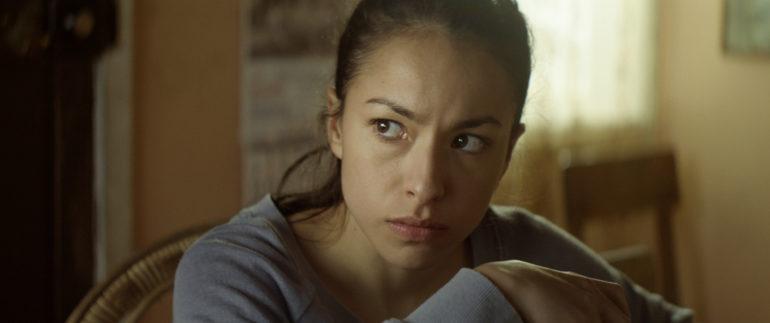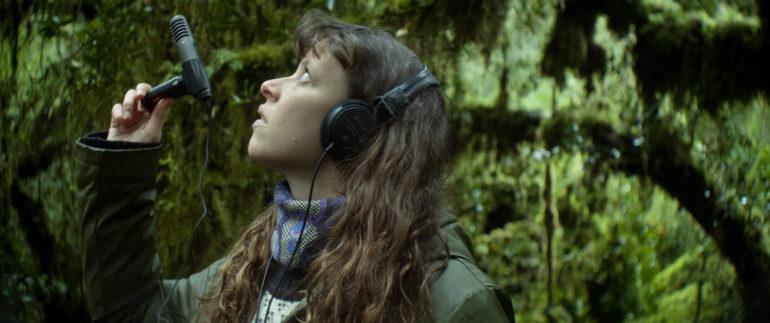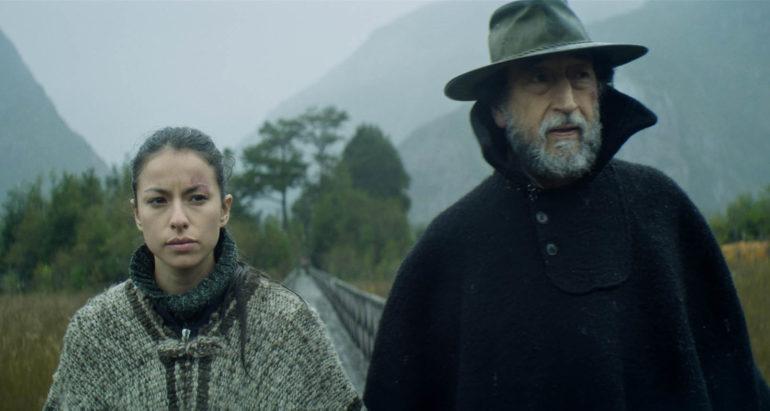Director Felipe Ríos on Karlovy Vary Competition Film ‘The Man of the Future’
By Jamie Lang
LOS ANGELES (Variety.com) –
Chilean filmmaker Felipe Ríos’ “The Man of the Future” holds the unique distinction of being the only film from his country to participate in the main competition at Karlovy Vary Film Festival, where it world premiered on Wednesday evening.
Set on the highways of the the seemingly endless ranges of Chile’s southern Andes, Ríos’ road film tracks an estranged father and daughter who end up on the same lonely road south, he a truckdriver and she a hitchhiker in separate rigs.
The unplanned encounter offers the opportunity of reconciliation, and possibly a path to a shared future. The minimalist film set in anything-but minimal surroundings also proved a chance for Ríos to face his own troubled relationship with his father.
“The Man of the Future” is produced by Chile’s Quijote Films and co-producers Sagrado Cine and La Unión de los Ríos. Celebrated Argentine filmmaker Alejandro Fadel, a two-time Cannes participant with 2012’s “The Wild Ones” and last year’s “Murder Me, Monster,” co-wrote the screenplay.
It stars Chilean TV star Antonia Giesen (“Río Oscuro”), Pablo Larraín regular José Soza (“The Club,” “Neruda”) and Argentine rising star on both sides of the camera María Alche, who wrote and directed last year’s Locarno and San Sebastian standout “Familia Sumergida.”
Ríos talked with Variety ahead of Karlovy Vary about writing with Fadel, his relationship to the story and who the real “Man of the Future” is.
This is the first Chilean film to screen in the main competition at Karlovy Vary. How did that come about?
It’s a great honor
to be able to premiere the film
in a festival as important and lively as Karlovy Vary. Not only because it
is the first
time that Chile has a film
in the
official competition, but also because it
is the result of a very long
process. Being able to share the material for the first time with the public after so long is very comforting for me.
I have a lot
of anxiety before seeing how viewers react. For me, to screen the material with the public
is, in a way, to return to the origins of
the project, to its premise, which is to travel, and feel the emotions of another.
Can you talk about the screenwriting process with Alejandro Fadel? Where did the story come from?
Alexandro was key to the writing process. He had a very different
way of approaching
the story. From the beginning
he
wanted
to
center the story around Elena, who was a secondary character at first. He always had a lot of respect for my
creation space, but at
the
same time
he always
maintained a strong point of
view, and that constant debate helped me find an appropriate way to express the emotions I wanted to communicate. I think
Fadel’s work in writing and
filming, and lead actress Antonia Giesen on set, helped me to be able to connect with the feminine side of the story, which
in my opinion is the most
interesting part of the film.
Michelsen is a man who belongs to a world of the past that is disappearing around him, so why did you choose the film’s title?
For me
it is very important to be
able to capture spaces, characters, customs and looks of a
world that
is endangered,
such as
Patagonia. I think that those men and women who live in such an isolated world can often lack the tools to express their emotions, perhaps because
of the
presence of a silence so deep that sometimes it’s preferable not to speak. I connected
a
lot with that way
of
relating, even though I’m from the city and am part of a supposedly hyperconnected world. I find myself unable to connect emotionally with others in a sincere way. I think we are in a world
where one
tends to focus on individualism and dodge real human relationships. Elena shows a
tremendous valor in facing her father who she hasn’t seen for years and
try to heal old wounds. To me, she is the man of the future.
This is your first
feature film.
How did you find the process?
First, I
let myself fall in love with
environments that inspired me. I listened to
the few words of
silent people and felt the temperature of a cold
and distant
place. But as time went
on, I realized
that was just the context for telling something that I had inside, which was my relationship with
my
father. I used my
biography,
pains that I’ve had since childhood, and I realized that
that world that created me was the right setting
to
express
my emotions. For
me,
art becomes a kind of therapy, a medicine. For a long time, I thought I was writing about a trucker in Patagonia. I
t was a revelation when I realized
that the story I had in my hands was about my relationship with my father.
This film is very Chilean in its language, look and characters, but the themes it addresses are completely universal. What is its intended audience?
I find it wonderful that such a remote and particular place can be the context to talk about how important and difficult it
is to
forgive. I felt a great need to capture the essence of that place and to be able to make the viewer travel on those southern routes, but without
neglecting the most
important part for me, which is to be able to empathize about something nobody can escape, which is the relationship
between parents and children, and the ability to
close wounds that often come from early childhood.



